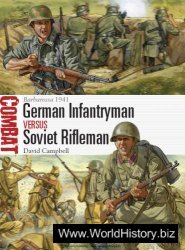The combatants in the War of the Austrian Succession, and the subsequent Seven Years
War in which Austria tried unsuccessfully to regain Silesia, involved some countries
that had been major powers in Europe for centuries, but also one that was quite new:
Brandenburg-Prussia. In the fi fteenth century, two branches of the Hohenzollern family
ruled various scattered territories in the northern part of central and eastern Europe,
the largest of which were Brandenburg – offi cially called an “electorate” because its
ruler was one of the seven people who elected the Holy Roman Emperor – and Prussia,
a duchy on the Baltic that had earlier been ruled by the Teutonic Knights. These two
states were separated from one another by part of Poland, and other Hohenzollern
holdings were even more distant. Brandenburg was poor, and its population was devastated
in the Thirty Years War. During the course of the war the Elector of Brandenburg
inherited Prussia and the rest of the Hohenzollern holdings when one branch of the
family died out, and toward the end of the war this offi ce passed to the very talented
Frederick William (ruled 1640–88).
Frederick William, dubbed the “Great Elector,” and his successors, who had themselves
crowned kings of Prussia starting in 1701, followed a distinctive path toward
building an absolutist nation-state. Frederick William forced the Estates of his various
territories to grant him permanent taxation rights, promising in return that the
nobles who dominated the Estates would be free to deal with their peasants as they
wished and pay lower taxes. (The latter promise was broken by his successors.) He
used the money to build a huge army, in which soldiers also served as tax collectors
and policemen, so that any opposition to his measures was easily crushed. He
steadily increased taxation to pay for the army, and supported measures that would
improve the tax base, such as encouraging industry. Prussia learned from the experience
of the Netherlands about the economic benefi ts of religious toleration, so
welcomed French Huguenots and other refugees, many of whom became soldiers in
the Prussian army.
Frederick William’s grandson, also named Frederick William (ruled 1713–40), took
devotion to the army to new heights. He always wore a military uniform, and surrounded
himself with a platoon of very tall soldiers, who were recruited by his agents
from throughout Prussia and elsewhere in Europe, sometimes by force. He drilled
troops himself, and was fanatically obsessed with discipline, beating soldiers who did
not meet his standards. His troops became the terror and the model for those in other
countries, so feared for their skills that Frederick William actually needed to use them
relatively rarely, accomplishing more of his objectives by diplomacy than force. Frederick
William expected martial values to shape all of Prussian society, not just the army,
autocratically demanding the obedience “with life and limb, with house and wealth,
with honor and conscience” of his subjects. He supported compulsory primary education
and broadened technical training because these would provide better soldiers,
and rewarded offi cials who were effi cient with high positions, even if they were commoners.
He did not neglect the nobles, called Junkers , giving those who supported him
positions as offi cers in the army, where they would have nearly absolute control over
their soldiers in the same way as they did over the peasants on their estates. Prussian
society in and out of the army became highly disciplined, with obedience and order
the most prized virtues.
Frederick William’s son Frederick II (“the Great”, ruled 1740–86) built on his father’s
example in many ways, further expanding education, demanding honesty and hard
work of his offi cials, promoting improvements in agriculture and industry, and personally
leading his troops. He used the huge Prussian army more than his father had,
doubling the population of the country by taking Silesia from Austria, and warding
off attempts by the combined forces of France, Austria, and Russia to conquer Prussia
during the Seven Years War.




 World History
World History









